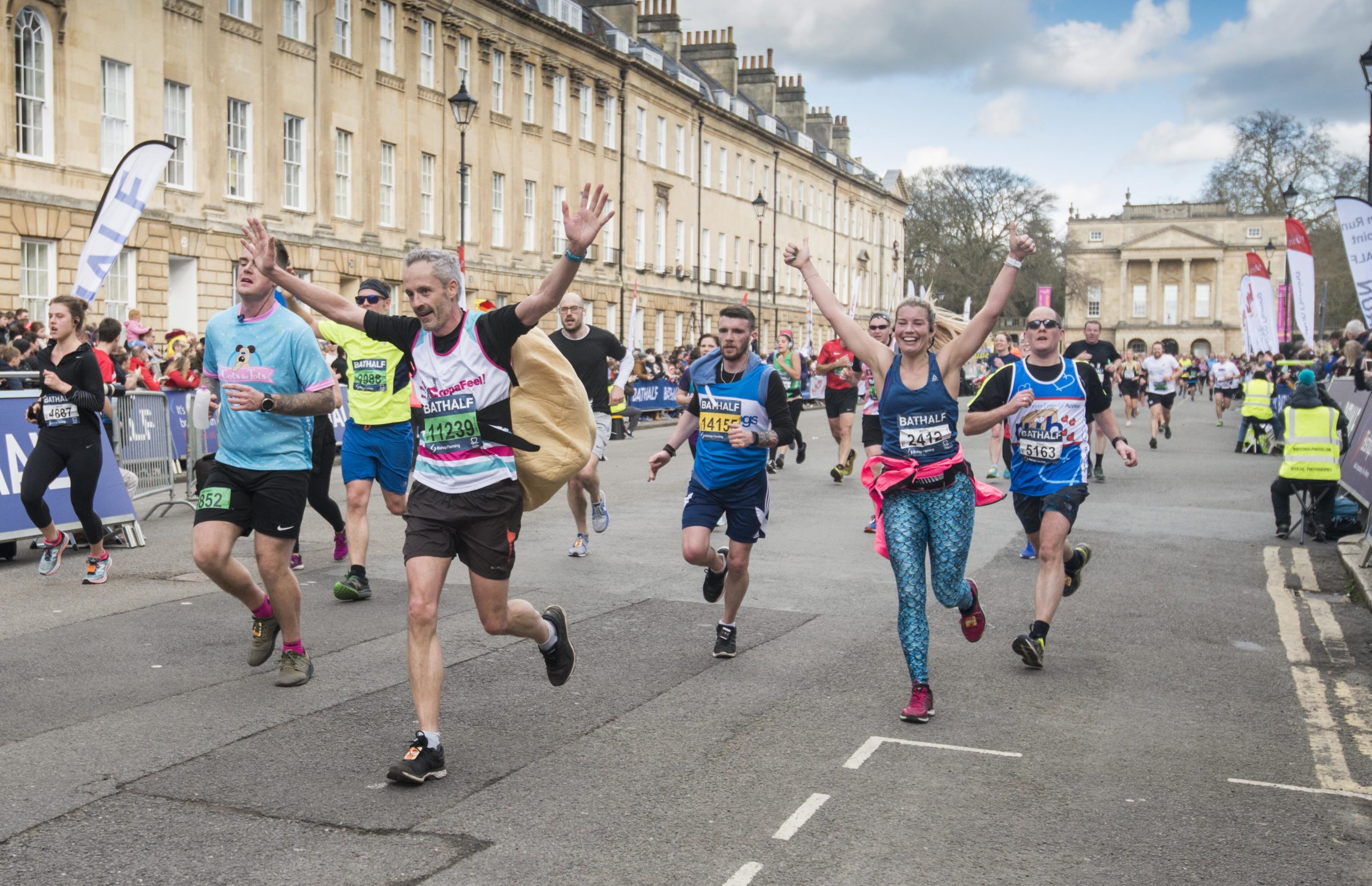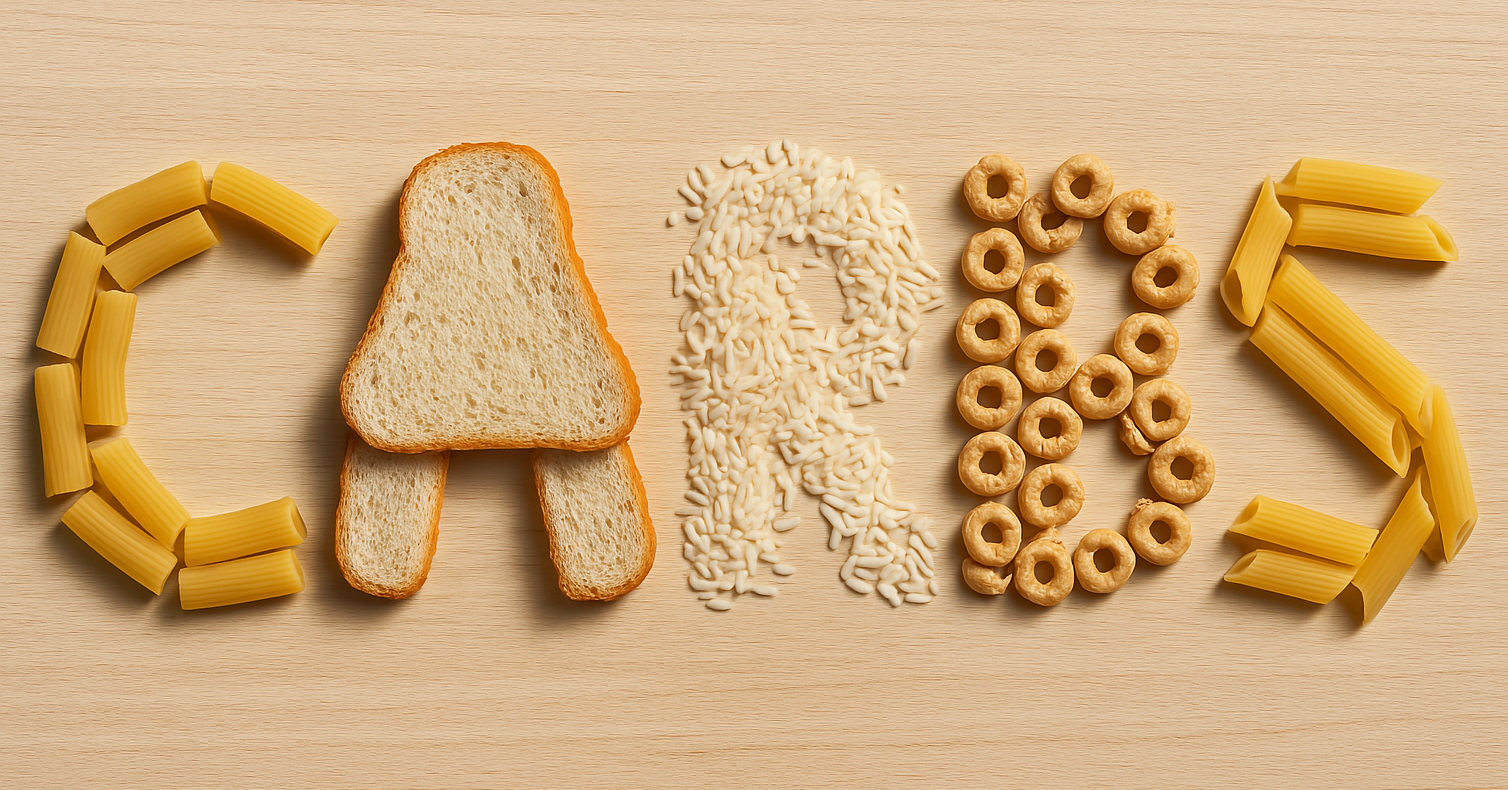What To Do In The Week Before A Half Marathon

You’re one week away from a half marathon, so what do you do in the final seven days to make sure you’re ready on the start line?
We’ve got a suggested week for beginner runners and for more experienced runners.
TOP TIPS FOR ALL RUNNERS
Whether you’re running your first or your 100th half, and whether you’re aiming to complete the distance or challenge for a fast time, there are some things that apply to all runners in the week before a half marathon.
CARRY ON RUNNING (BUT SKIP THE WEIGHTS)
While we’re tapering to race day we still want to carry on running to make sure we’re still using all our running muscles.
You can keep your usual running routine (and perhaps add one extra rest day), just decrease the volume and intensity as now is the time to prioritise rest and trying to make sure your body feels fresh for race day.
If you’re aiming for a particular time, then you could do some short intervals at that pace as it can help your body feel race pace without it leaving you feeling fatigued. Running some strides at the end of each run can also help prime the muscles for race day.
If you typically do strength work with weights then skip those this week to prioritise your recovery. If you still like to do some functional movements then consider doing bodyweight exercises.
RELAX, RECOVER & REST
You’ll be running less than usual this week and it’s a good excuse to swap some of that running time for resting time, extra sleep, or activities that help you feel rejuvenated (that could be recovery protocols like foam rolling, or it could be watching a movie, reading, yoga, or anything that helps you to feel relaxed).
Some runners like to get a massage before a race, others will spend more time working on mobility, stretching, or foam rolling. This is an individual preference based on what you’ve done in your training.
The reality here is that most of this stuff is for your mind as much as your body, so only do the things which you believe will help you on race day. The main goal in the seven days before a race is to get your body and your mind feeling ready.
THINK ABOUT NUTRITION
For a half marathon you don’t need to change your diet much in the week of the race, and you don’t need to specifically carb-load for a half marathon. But you do still need carbs as they are the body’s energy source – no carbs, no energy!
The day before the race you should include carbohydrates in all your meals, but you don’t need to pile up the pasta and stuff your face. Go with the carbs that you know work well for you (oats, pasta, pizza, rice, etc) and just eat a normal portion size for you. Here are some ideas of things to eat before running.
If you do a harder run in the week before the race then go into the run well-fuelled and have protein and carbs after the run to refuel.
Drink plenty of water (and add some electrolytes) the day before the race. Arriving at the start line hydrated can help you perform better in your run.
Plan your pre-race breakfast. Popular choices for runners are a bagel or bowl of porridge, and it should be something you’ve had numerous times in training.
PLAN YOUR RACE DAY EXPERIENCE
Know how you’re going to get to the race and how you’ll get back afterwards. Check the start times and the time you need to arrive at the race to drop off a bag.
Arrange with friends and family where you’ll see them on the course, and meet them at the end of the race.
Check the race route so you know what to expect on the course.
Make sure all your kit is ready, charge your watch, and be prepared for whatever weather it looks like you’ll get on race day.
BEGINNER HALF MARATHON RUNNERS
Are you running your first half? Or are you a runner who isn’t focused on setting a particular time? If so, this is a guide to how to approach your half marathon race week. This aims for three runs in the week before your race, but if you feel that’s too much then you can add an extra rest day or replace the run with a walk or other cross-training.
MONDAY
If you usually run on Monday then start the week with an easy run. Anything from 20-50 minutes is fine. You could add some strides to the end of this run to feel a little speed in your legs.
If Monday is usually a rest day for you, then keep it as a rest day.
Today is a good day to work on some mobility, stretching, yoga or foam rolling to help your legs feel good.
TUESDAY
If you ran yesterday then have a rest day or do some easy cross training (cycling, swimming, walking). Around 30 minutes is good.
If you had a rest day on Monday, then go for an easy run of 20-50 minutes. Add some strides at the end.
WEDNESDAY
A few days out from your race, it’s a good chance to do a little bit of faster running – but nothing too fast or too intense, this is more about doing a run that makes you confident for your race.
If you haven’t done any faster running in your training then just aim for a 30 minute run at your usual pace.
An example run would be:
10 minutes easy jog warm up
5 x 2 minutes at the pace you want to run the half marathon (or a little faster)
10 minutes jog cool down
THURSDAY
Rest day. Do something that helps you feel recovered, rested and relaxed: take a bath, get a massage, foam roll, watch a movie. Just chill out and take it easy.
FRIDAY
A short easy run or easy cross-training (20-40 minutes) or take another rest day.
Today you want to prioritise rest and get a good sleep ahead of the weekend. It’s a good idea to have a dinner with a serving of carbohydrates for dinner.
SATURDAY
Take it very easy today. Stay off your feet as much as possible. Some people like to do a very short ‘shake out’ run. That could be anything from 5-20 minutes at a very easy pace, perhaps with a couple of faster strides at the end. This can help to ease some pre-race nerves.
Have a normal portion of carbohydrates in all your meals today and make sure you drink plenty of water (add some electrolytes as well to improve your hydration).
Try and get to bed early. Lots of people struggle to sleep the night before a race, and you often have an early alarm.
If your race is on Saturday, then move everything forward by one day.
SUNDAY
Race day! Go get it.
You might want to do a short fast walk or slow jog before your race, plus any drills or stretches that you know help you before running. Just a minute or two is enough to get your legs moving before the gun goes off.
EXPERIENCED HALF MARATHON RUNNERS
Runners who are more experienced at racing half marathons may choose to approach race week differently, whether going for a new best time or just to compete.
This assumes doing four or five runs before the race.
MONDAY
Easy run of 30-45 minutes, the length depending on the volume of running you’re comfortable with. Add some strides at the end.
TUESDAY
A lot of people have Tuesday as a workout day, so keep up that schedule. There’s no real benefit to running short fast reps, so focus on slightly longer reps and work through a range of paces, including beyond race pace.
An example run would be:
10-20 minute warm up
3-5 strides
2 x 800m/half mile at marathon pace (60-90 secs walk between each)
2 x 800m/half mile at half marathon pace (60-90 secs walk between each)
2 x 800m/half mile at 10km pace (60-90 secs walk between each)
Cool down
WEDNESDAY
Easy run of 30-45 minutes, some easy cross-training, or take an extra rest day.
THURSDAY
Race pace tempo. Get your body used to feeling race pace with a short tempo run. After a 10-15 minute warm up, run 15 minutes at race pace, then another 10-15 minutes easy. Keep it controlled and don’t try to run too fast. The aim here is to have your race pace feeling comfortable and easy.
Make sure you refuel with extra carbs and protein after the workout to help your recovery.
FRIDAY
Rest day. Time to prioritise rest and recovery. Foam roll, stretch, go for an easy walk, have a nap instead of your usual run, whatever you like to do to feel rested and relaxed.
SATURDAY
Most runners will go for a shakeout run before tomorrow’s race. This could be anything from 15-30 minutes, mostly at an easy pace. Some runners like to push to race pace for 5-10 minutes, and also do a few strides which can help to activate different muscles.
SUNDAY
Race day!
You’ll know the volume of warm up that works for you, but 5-15 minutes is good for most runners, with a few strides and a minute of two at goal race pace. Doing this means that when the gun goes off, your body is ready for the pace you want to run at.
***
Do you have a race week routine that works for you? What do you do that helps you feel race ready?




























Running News
Ingebrigtsen Stars at World Athletics Indoor Championships 2025 – Plus All The Winners!
Sam Ruthe Is First 15-Year-Old To Run A Four-Minute Mile!
Eliud Kipchoge Will Run The 2025 Sydney Marathon!